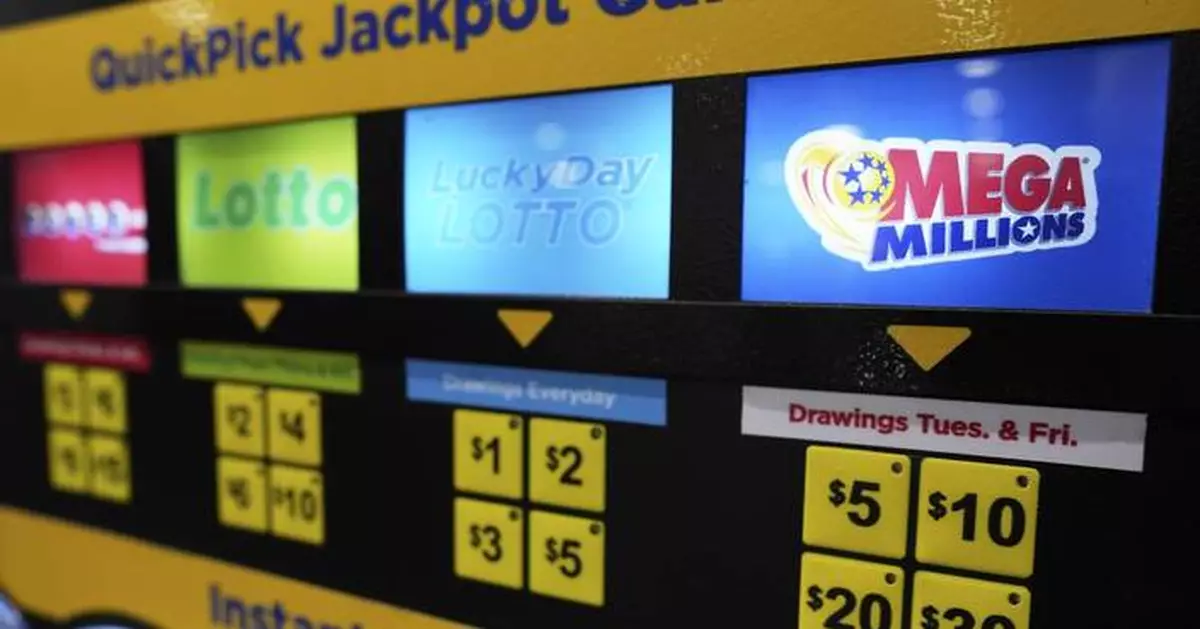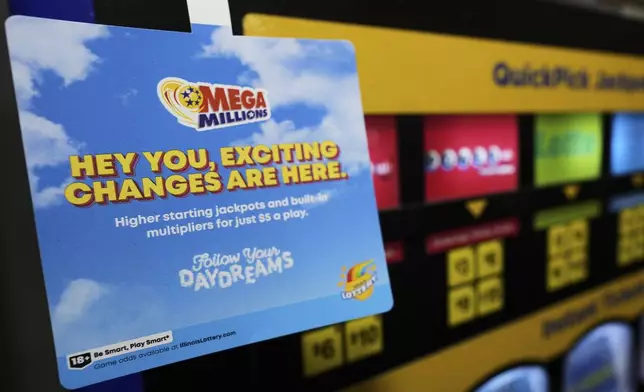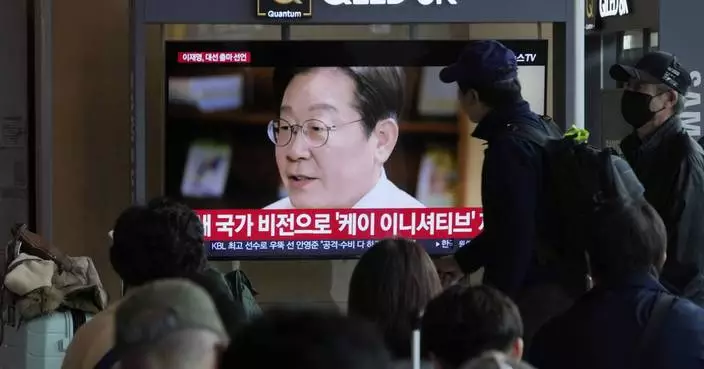DES MOINES, Iowa (AP) — Mega Millions players will get slightly better odds and should start seeing more billion-dollar jackpots, but at a cost — literally — with tickets for the multistate lottery jumping in price to $5.
The price for playing Mega Millions more than doubled for drawings starting with Tuesday's, but lottery officials are betting that the swollen jackpots they're expecting will catch the public's attention and lead to an accompanying surge in sales
Click to Gallery
Pete Gruber holds a Mega Millions lottery ticket at Mares Mart in Chicago, Sunday, April 6, 2025. (AP Photo/Nam Y. Huh)
Purchased Powerball and Mega Millions tickets are shown at Mares Mart in Chicago, Sunday, April 6, 2025. (AP Photo/Nam Y. Huh)
A Mega Millions lottery ticket is printed out of a lottery machine at Mares Mart in Chicago, Sunday, April 6, 2025. (AP Photo/Nam Y. Huh)
Information sign about Mega Millions ticket prices are set to increase on lottery ticket vending machine at a convenience store in Chicago, Sunday, April 6, 2025. (AP Photo/Nam Y. Huh)
Pete Gruber points a Mega Millions lottery ticket after he purchased at Mares Mart in Chicago, Sunday, April 6, 2025. (AP Photo/Nam Y. Huh)
Information sign about Mega Millions ticket prices are set to increase, left, and a customer shows a printed Mega Millions lottery ticket at a convenience store in Chicago, Sunday, April 6, 2025. (AP Photo/Nam Y. Huh)
An employee of Mares Mart hands a Mega Millions lottery ticket to a customer in Chicago, Sunday, April 6, 2025. (AP Photo/Nam Y. Huh)
Pete Gruber points a Mega Millions lottery ticket after he purchased at Mares Mart in Chicago, Sunday, April 6, 2025. (AP Photo/Nam Y. Huh)
A Mega Millions lottery ticket vending machine is seen at a convenience store in Chicago, Sunday, April 6, 2025. (AP Photo/Nam Y. Huh)
A lottery ticket vending machine is seen at a convenience store in Chicago, Sunday, April 6, 2025. (AP Photo/Nam Y. Huh)
“People really want big jackpots,” said Joshua Johnston, the Washington state lottery director who heads the Mega Millions game. “We expect to see a sales lift on this.”
The biggest change is the ticket price hike from $2 to $5. Lottery officials expect that jump to increase revenue from the twice-weekly game, enabling them to improve the odds of winning the jackpot from 1 in 303 million to 1 in 290 million.
The higher ticket price also means the jackpot can start at $50 million, rather than the previous $20 million, and that the grand prize is expected to grow more quickly. Each time there isn’t a big winner, the jackpot will jump by a larger amount. Officials expect it will more frequently top the $1 billion threshold that draws extra attention — and bigger sales.
Under the new rules, prizes for tickets not matching all six numbers also will increase, with non-jackpot winners now guaranteed at least $10. Each ticket also will include a randomly assigned multiplier that can increase the prize by up to 10 times, a previous add-on feature that cost an extra $1. The multiplier doesn't apply to a jackpot.
The new rules have two main goals: to address what the industry calls “jackpot fatigue" and to differentiate Mega Millions from Powerball, the other lottery draw game played across the country.
Jackpot fatigue is the phenomenon under which prizes must grow to enormous amounts before most players will take note and buy a few tickets. These days, a $300 million prize that once drew lines at mini-marts barely registers.
With the new rules, officials expect those average winning jackpots to climb from about $450 million to $800 million, Johnston said. And they believe that even lottery fatigue is no match for the more frequent billion-dollar prize.
“When you get to a billion people are like, ‘Whoa, that’s a whole lot of money,'” Johnston said.
Lottery officials said there is a clear correlation between bigger jackpots and higher sales, but not everyone who plays is swayed by the bigger pots.
Sandie Yeaman, of Omaha, Nebraska, expressed puzzlement at the connection.
“I’d be satisfied with $1 million, and so would others," she said. "One person winning $50 million is ridiculous.”
Mega Millions will be the country's most expensive lottery draw game, where random numbers are selected to determine a winner.
Still, that price is far less than scratch tickets offered by some states. In Texas, for example, some scratch tickets cost $100 each.
Outside the U.S., the El Gordo Christmas lottery in Spain limits the number of tickets sold and charges 20 euros (nearly $22) for a partial ticket and 200 euros (nearly $220) for a full ticket.
The higher Mega Millions price left Saeedith Williams, of East Point, Georgia, unsure if he'll keep buying several tickets per week. “Maybe I’ll buy one ticket a week now that it’s $5 a ticket,” he said.
After the new rules are implemented, the two lottery games that once were remarkably similar now will have some key differences.
The biggest contrast will be the cost, as Powerball will stick with its $2 tickets — $3 in Idaho and Montana where they require a special prize bundle.
With that smaller ticket price will come smaller minimal prizes, starting at $4, or less than half the lowest Mega Millions prize. But Powerball players will still be able to pay an extra dollar for “Power Play,” a random multiplier that, as in Mega Millions, can increase all but the grand prize.
Powerball drawings will continue to be three times a week — Monday, Wednesday and Saturday nights — while Mega Millions will hold drawings on Tuesday and Friday.
The changes will bring the two games' jackpot odds a little closer, with Powerball jackpot odds of 1 in 292.2 million just a bit worse than the new Mega Millions odds.
For players, it's a chance to spend a little money on a dream of incredible riches while acknowledging the reality that it almost certainly won't happen.
For the 45 states plus Washington, D.C., and the U.S. Virgin Islands where Mega Millions is played, the game raises money for a variety of services, such as education scholarships. Local lottery agencies run the game in each jurisdiction and decisions about how the profits are divvied up are written into state law.
Associated Press writer Margery A. Beck contributed from Omaha, Nebraska.
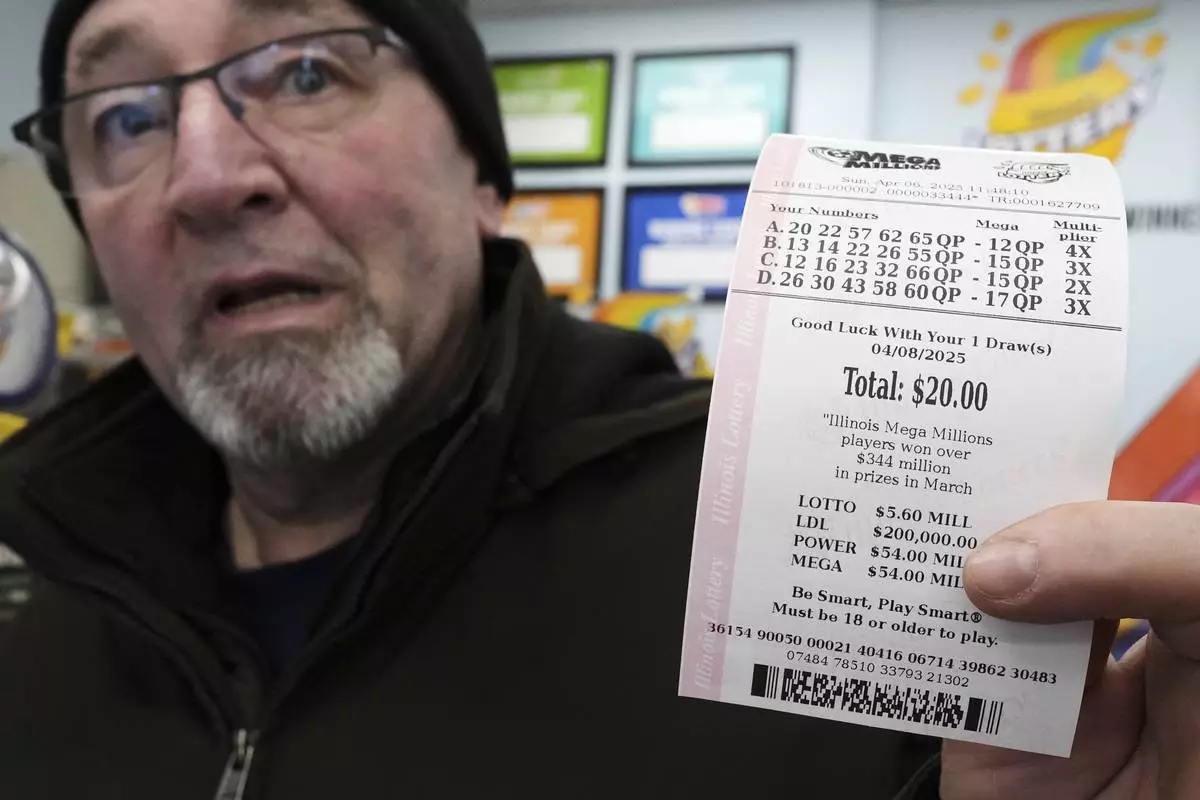
Pete Gruber holds a Mega Millions lottery ticket at Mares Mart in Chicago, Sunday, April 6, 2025. (AP Photo/Nam Y. Huh)
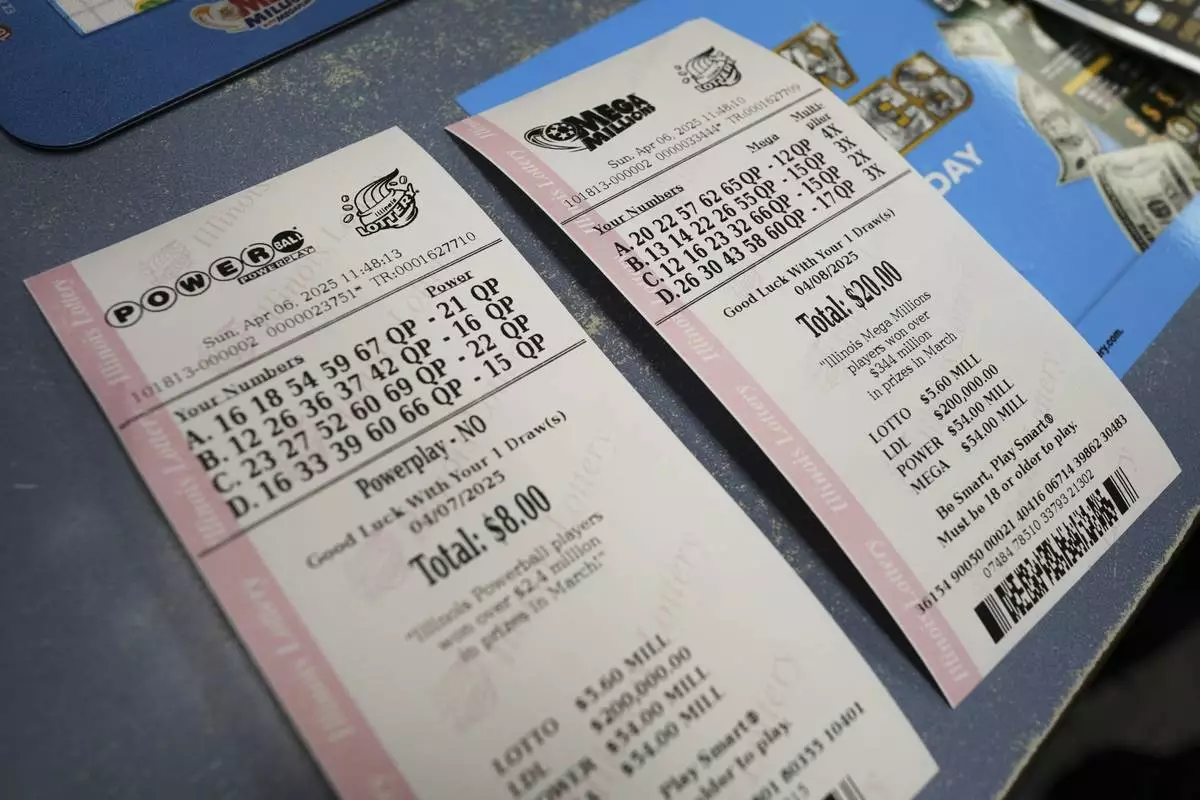
Purchased Powerball and Mega Millions tickets are shown at Mares Mart in Chicago, Sunday, April 6, 2025. (AP Photo/Nam Y. Huh)
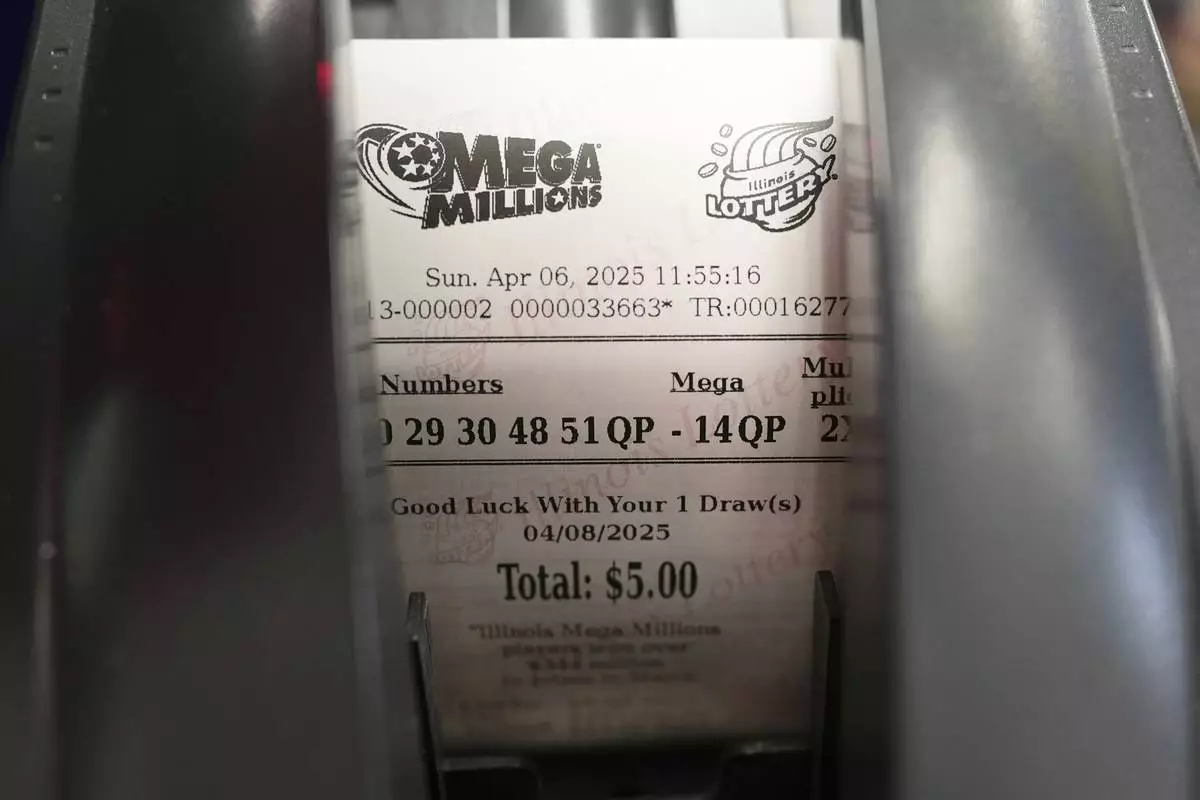
A Mega Millions lottery ticket is printed out of a lottery machine at Mares Mart in Chicago, Sunday, April 6, 2025. (AP Photo/Nam Y. Huh)

Information sign about Mega Millions ticket prices are set to increase on lottery ticket vending machine at a convenience store in Chicago, Sunday, April 6, 2025. (AP Photo/Nam Y. Huh)
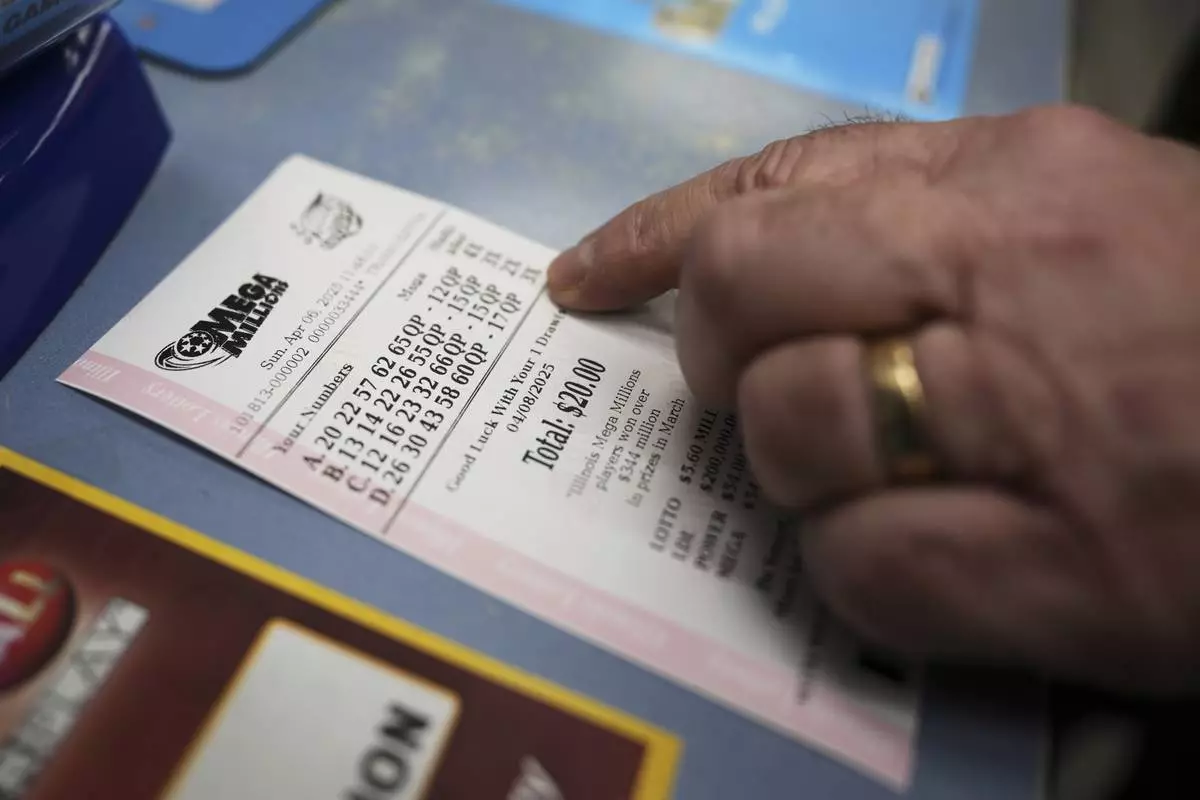
Pete Gruber points a Mega Millions lottery ticket after he purchased at Mares Mart in Chicago, Sunday, April 6, 2025. (AP Photo/Nam Y. Huh)
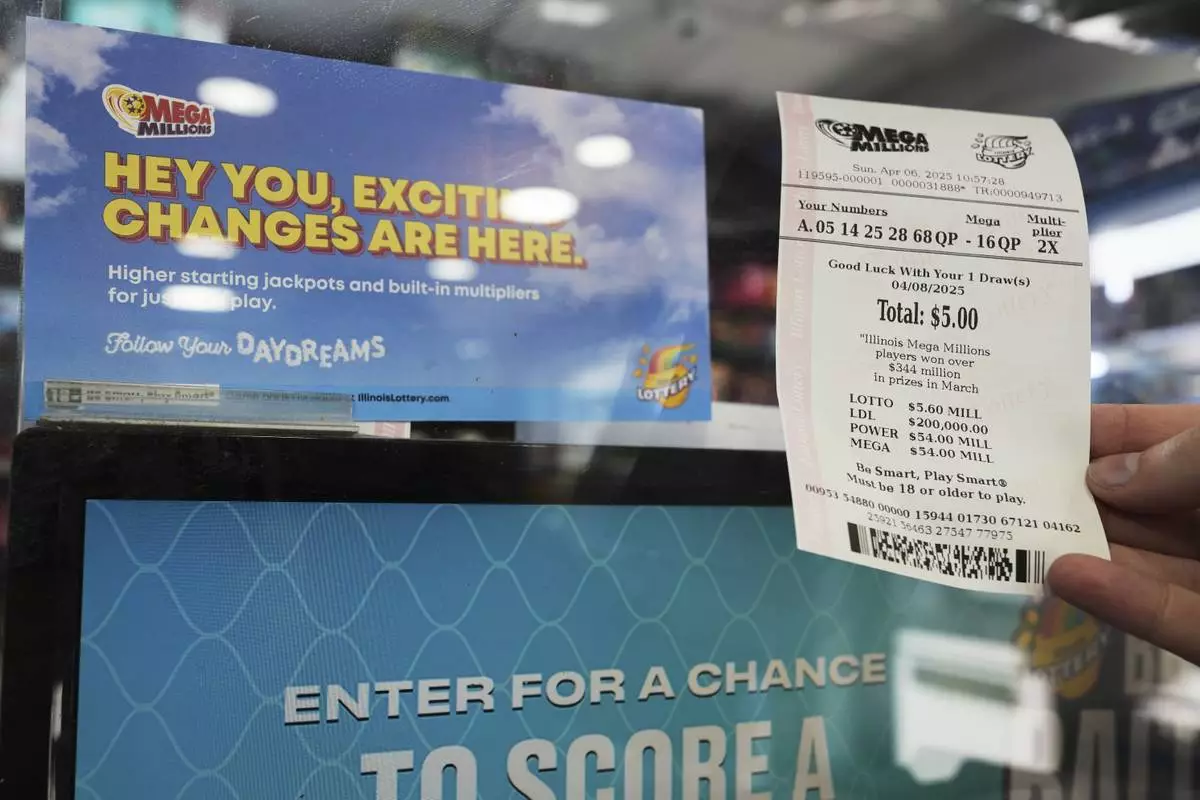
Information sign about Mega Millions ticket prices are set to increase, left, and a customer shows a printed Mega Millions lottery ticket at a convenience store in Chicago, Sunday, April 6, 2025. (AP Photo/Nam Y. Huh)
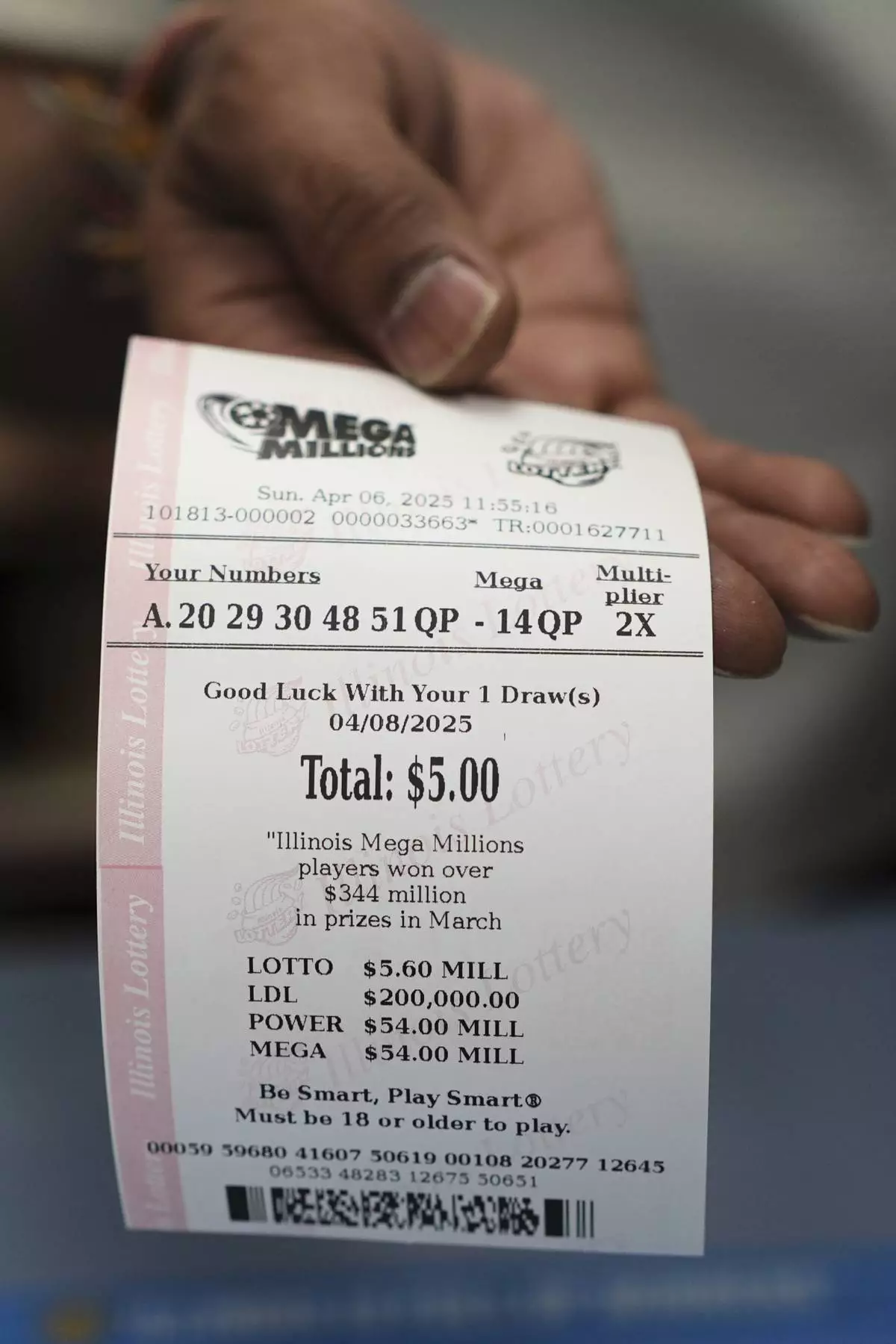
An employee of Mares Mart hands a Mega Millions lottery ticket to a customer in Chicago, Sunday, April 6, 2025. (AP Photo/Nam Y. Huh)
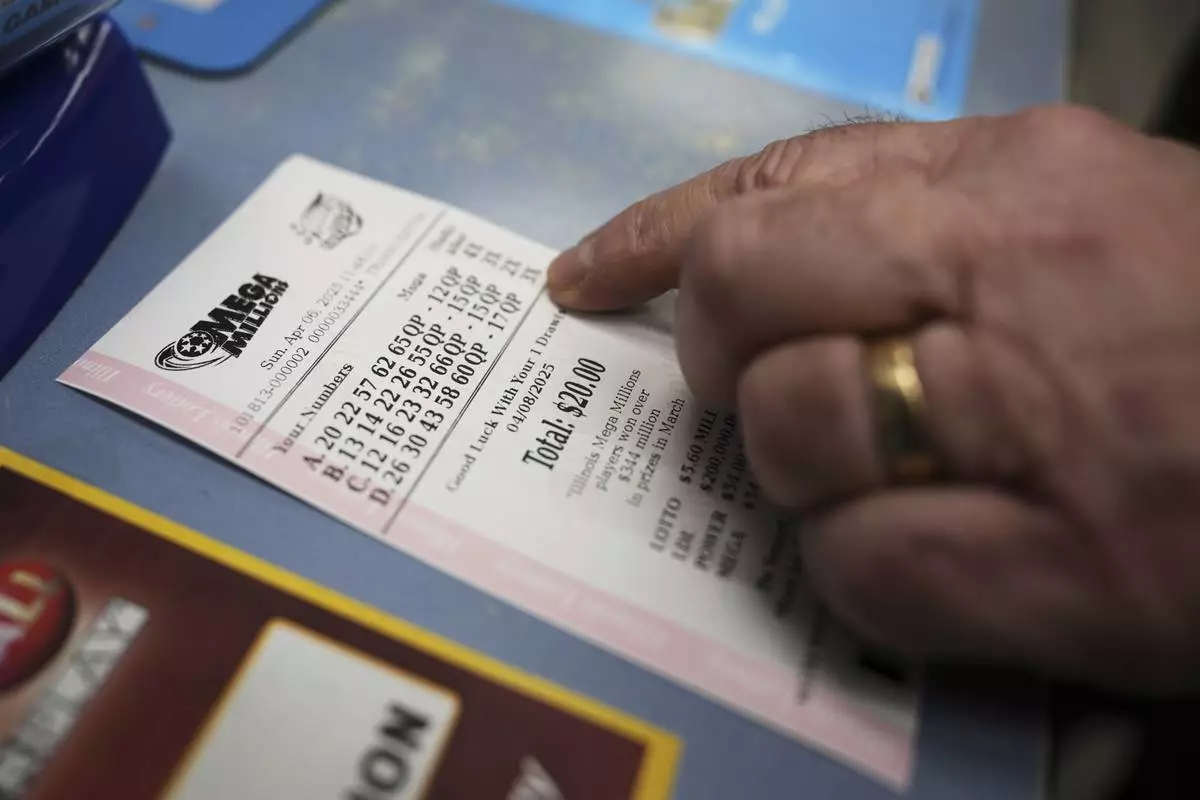
Pete Gruber points a Mega Millions lottery ticket after he purchased at Mares Mart in Chicago, Sunday, April 6, 2025. (AP Photo/Nam Y. Huh)
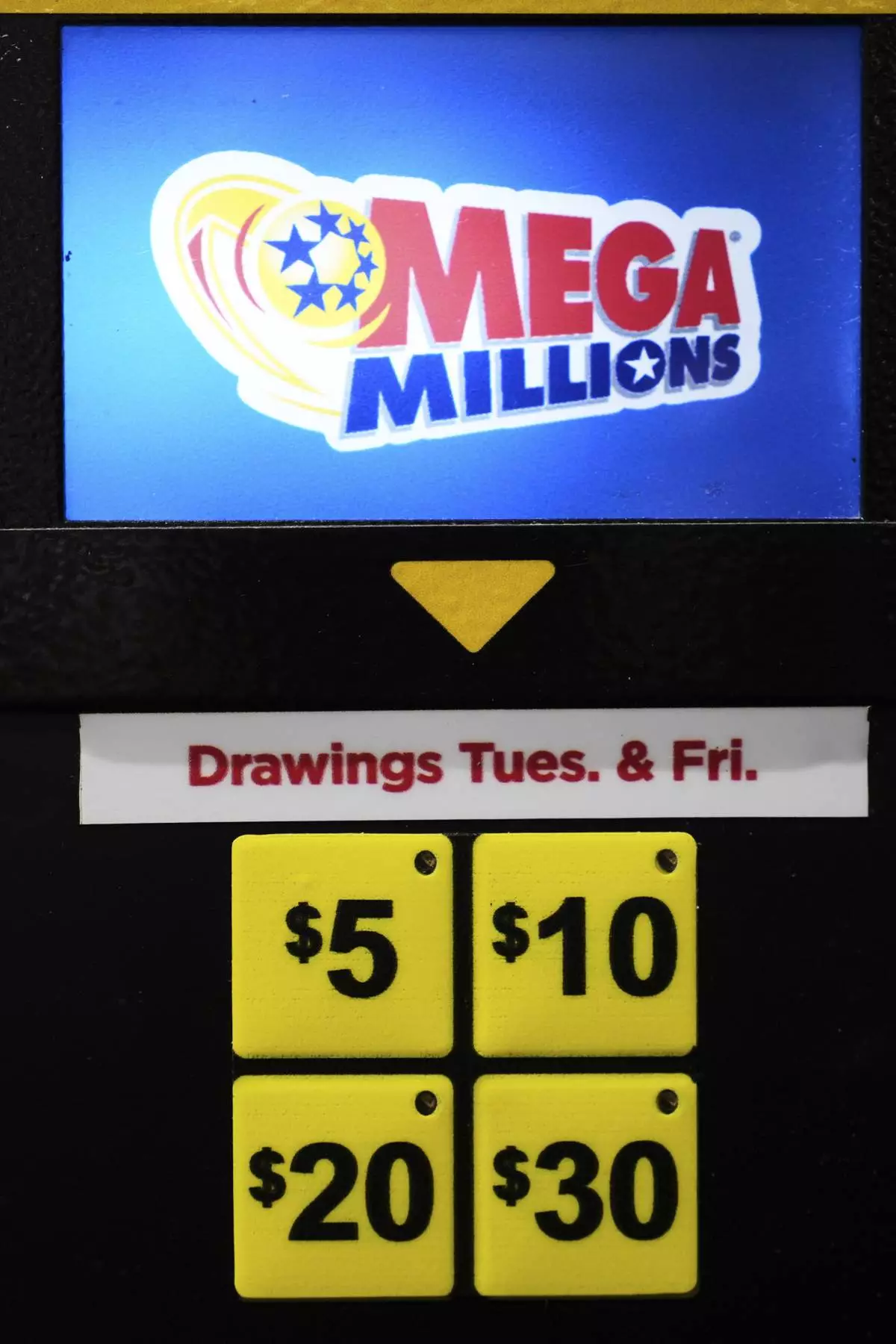
A Mega Millions lottery ticket vending machine is seen at a convenience store in Chicago, Sunday, April 6, 2025. (AP Photo/Nam Y. Huh)
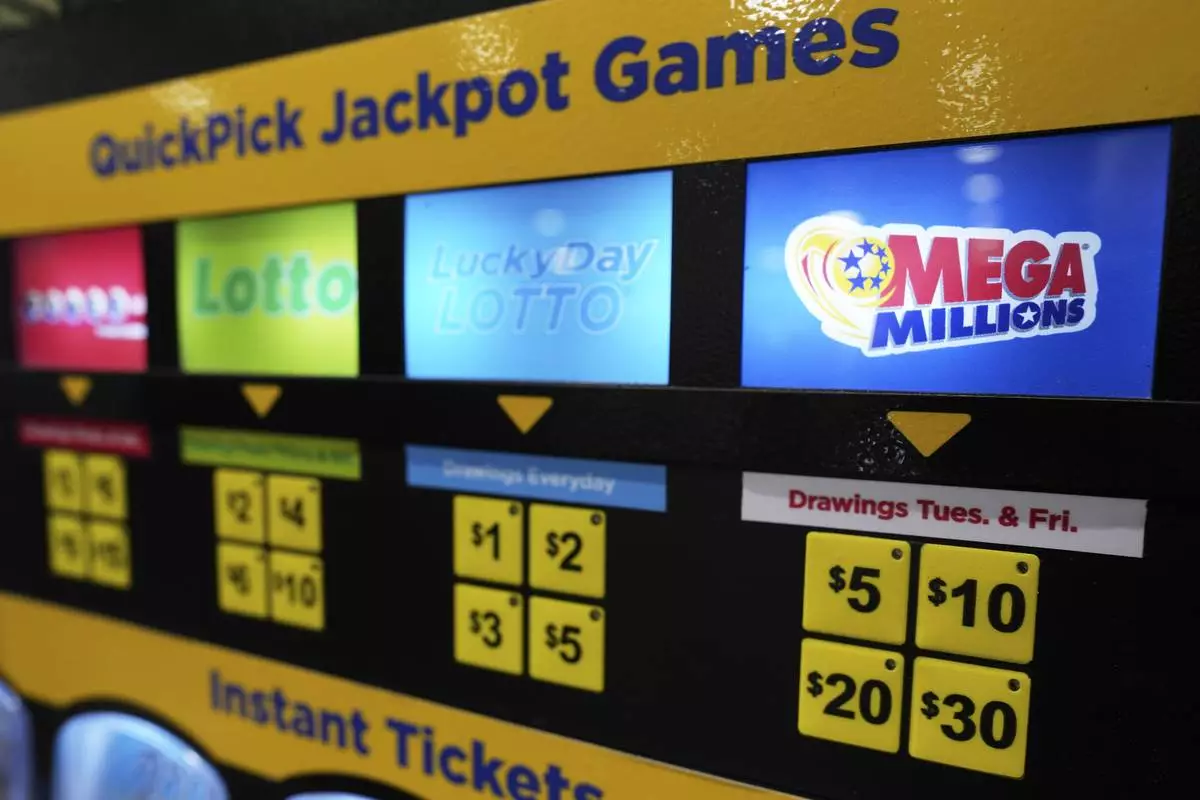
A lottery ticket vending machine is seen at a convenience store in Chicago, Sunday, April 6, 2025. (AP Photo/Nam Y. Huh)
LONDON (AP) — Planning an international trip? Travelers should prepare for the possibility of extra scrutiny of their phones when crossing borders, especially when entering the United States.
The Canadian government warned travelers in a recent travel advisory that U.S. border agents are entitled to search your electronic devices and “don’t need to provide a reason when requesting a password to open your device.”
Some recent cases have made travelers nervous about their privacy, such as when a Brown University professor with a U.S. visa was deported to Lebanon after border agents found a photo of Hezbollah’s leader on her phone.
“While 100% privacy may be impossible in these situations, there are a few things you can easily do that make it much harder for someone to see your private data even with physical access to your device,” said Patricia Egger, head of security at encrypted service Proton Mail.
Here are tips on protecting your device privacy while travelling:
Experts say the best strategy is to reduce the amount of information you’re carrying while traveling.
If possible, leave your phone at home. If you need one on your trip, borrow a tactic used by corporate executives looking to avoid hackers: get a temporary or “burner” device. It can contain just the information you need for your trip. Download anything else from the cloud when you need it.
If you have to bring your phone or laptop, upload sensitive information to a cloud storage service that uses end-to-end encryption, then delete the originals from your device.
Also, encrypt your phone or laptop’s storage drive and protect it with a strong password. Be aware this is different from merely having a device passcode lock, which is more easily cracked, or the end-to-end encryption on your favorite communication platforms.
Turn off fingerprint or facial recognition features and use the PIN or passcode instead.
There are two kinds of searches, according to the U.S. Customs and Border Protection website.
In a basic search, an officer scrolls through your phone’s photos, emails, apps and files. No suspicion of wrongdoing is needed to conduct this type of search.
In an advanced search, the contents of your device could be copied for analysis. But a senior manager needs to sign off and there needs to be “reasonable suspicion” of a legal violation, except if there’s any concern for national security, according to the Electronic Frontier Foundation (EFF).
“It’s hard to say,” says Sophia Cope, senior staff attorney at the EFF, which offers an extensive online guide to border privacy. Warrants are not needed to inspect devices belonging to anyone entering the country.
U.S. Customs and Border Protection agents carried out a total of more than 47,000 electronic device searches last year, up tenfold from a decade ago.
Basic searches “can be for no reason at all, totally random, or based on a mere hunch about someone – maybe based on how they look or an answer they gave to a preliminary question,” said Cope.
Travel history can also be relevant, for example, if a traveler originates from someplace where terrorism, drug trafficking, or child sex tourism is common, she said. Border agents can also search devices “at the behest” of other agencies like the FBI or if they’re associated with someone else of interest, such as a journalist’s source, a business associate or a family member.
Best to power off your devices when you touch down.
Under current policy, U.S. border agents are only allowed to look at information stored on the device, and not anything that’s kept in the cloud. So if you have to leave your phone on, make sure it’s kept in airplane mode or otherwise disconnected from the internet by Wi-Fi or cellular data.
“Before crossing the border, put your device in airplane mode to ensure remote files don’t get downloaded accidentally,” the Canadian government warns.
But keep in mind there might be cached data that still remains on your phone, such as files in the trash that haven’t been emptied.
American citizens can’t be denied entry to the United States for refusing to consent to device searches. The same should apply to lawful permanent residents such as green card holders, the American Civil Liberties Union says.
But agents can make things difficult if they’re refused. Travelers could be questioned, detained temporarily or have their devices seized and not returned for days or even weeks, rights groups say.
Foreign travelers could be turned back if they say no.
If you’re forced to unlock your device, Egger advises that “where you can, log in yourself rather than divulging any PINs or passwords, and if forced to share passwords, change them as soon as you can.”
Experts say the reason you should not use your device’s fingerprint or facial recognition feature is that it’s easier to compel you to unlock your device with biometrics. A border agent could simply hold your phone up to your face or force you to press your finger onto your device. There are also fears that police could use fingerprints stored on government databases.
Powering off your devices is another way to protect against sophisticated attacks in case you don’t consent to a search.
Most modern phones and some laptops encrypt their data using a strong cryptographic keys only accessible when the user unlocks it with the passcode, said Will Greenberg, the EFF’s senior staff technologist.
If the device is locked but not turned off, the key remains loaded on the device’s memory. Powerful hacking tools made by companies like Cellebrite can recover the key and decipher the data.
But if the device is off, the key is unloaded and can’t be accessed until it’s turned on again and unlocked with the passcode.
“This is why a border agent can’t simply turn a device on to use a tool like Cellebrite,” Greenberg said.
To be on the safe side, delete your social media apps and reinstall them later. Even though content is mainly stored on a social media company’s servers, Cope says some posts or images might remain on your phone’s memory cache and therefore viewable even in airplane mode.
It’s not just phones and laptops. Digital cameras, smartwatches, tablets, external hard drives and other electronic devices can be searched.
Some tactics might backfire. If you’re tempted to completely wipe your phone or laptop hard drive before you travel, experts warn it could raise scrutiny.
“If detected by a border agent, the fact that you wiped your hard drive may prompt the agent to ask why you did so,” the EFF’s guide says. “Even traveling without devices or data that most travelers typically have could attract suspicion and questions.”
Also don’t try to hide information on your device, because border agents could find out, the group says. “Lying to border agents can be a serious crime, and the agents may take a very broad view of what constitutes lying,” it says.
Check local laws of your destination before you travel. For example, Britain’s counterterrorism law allows police to demand that people passing through the country’s border hand over devices along with passwords and PINs. If they refuse, they can be charged with terrorism.
Is there a tech topic that you think needs explaining? Write to us at onetechtip@ap.org with your suggestions for future editions of One Tech Tip.
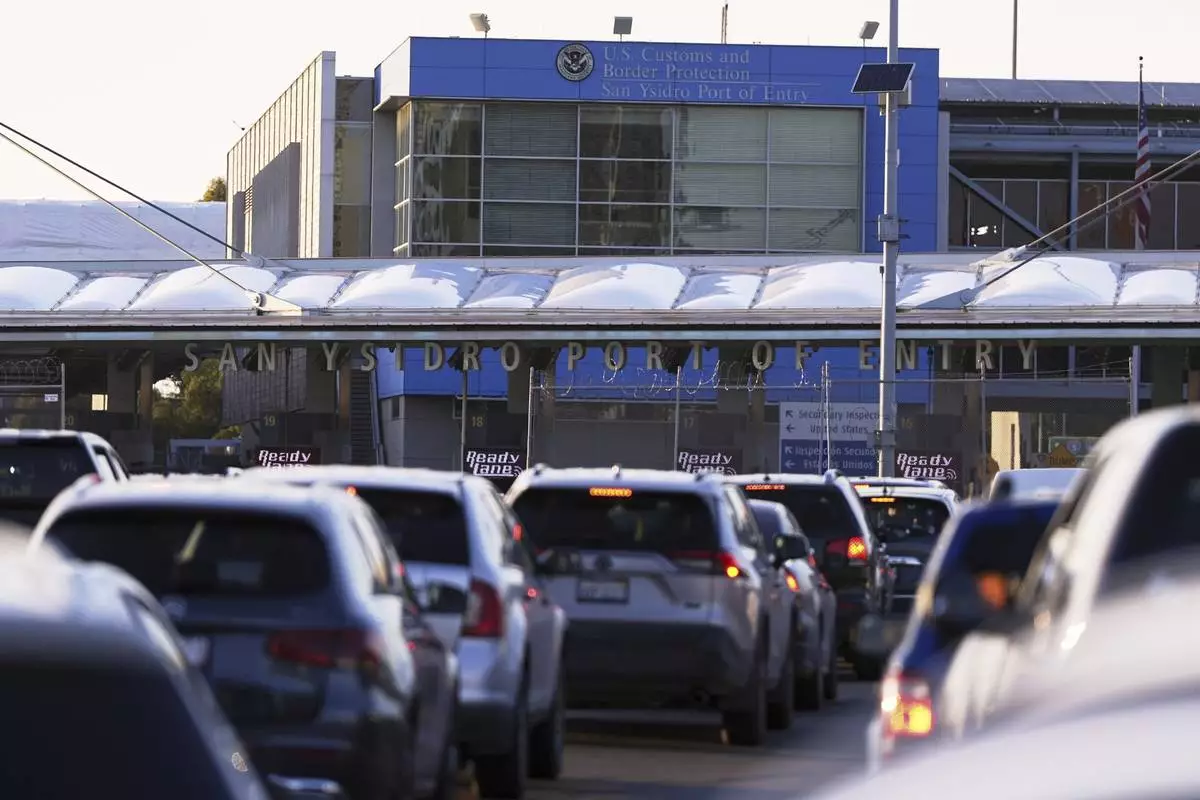
FILE - Vehicles wait in line to cross the border into the United States at the San Ysidro Port of Entry, Tuesday, March 18, 2025, in Tijuana, Mexico. (AP Photo/Gregory Bull, File)












